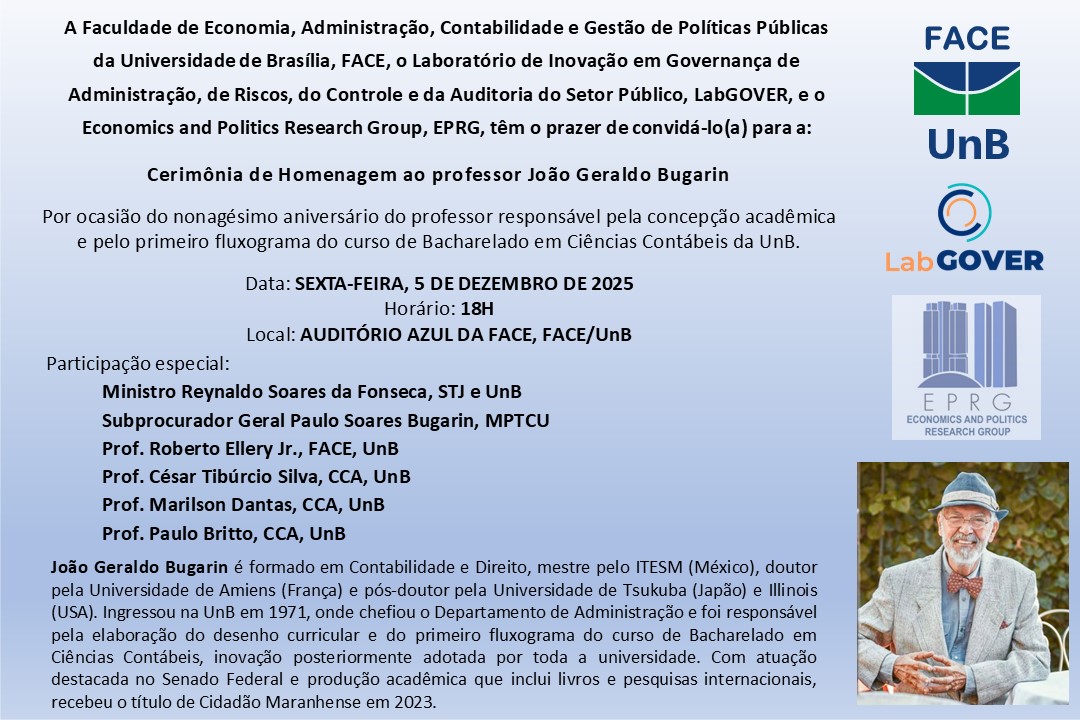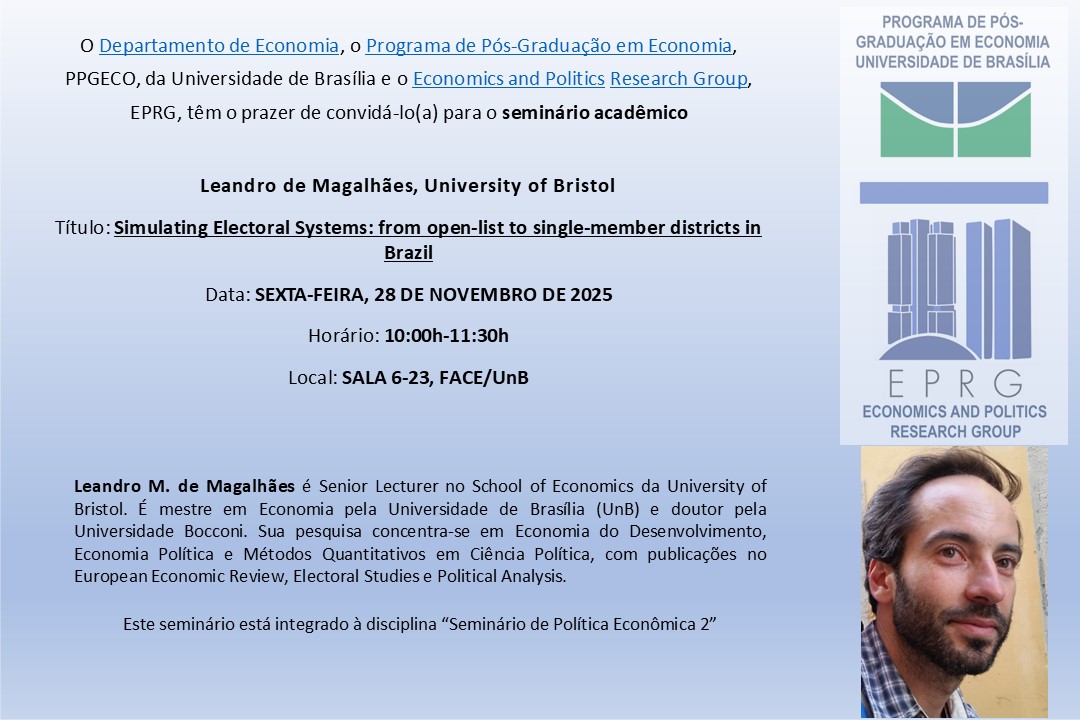Estágio de pós-graduação em Pesquisa no Banco Central do Brasil
O Departamento de Estudos e Pesquisas (Depep) do Banco Central do Brasil (BC) oferece cinco vagas de estágio no Programa de Estágio de Pós-Graduação em Pesquisa (PEPP). O estágio tem a duração de seis meses, renovável por até dois anos, e tem como objetivo proporcionar a participação em pesquisas em desenvolvimento ou a serem desenvolvidas pelo BC. Candidatas(os) devem estar cursando mestrado ou doutorado e desejarem combinar o espírito científico e inovador da academia com o foco em questões da Agenda de Pesquisa BC. Pessoas com temas da dissertação ou tese relacionadas aos tópicos nas áreas de atuação do BC terão preferência.
As candidaturas devem mencionar sua ordem de preferência entre as linhas de pesquisa descritas a seguir.
o Linha 1: Transmissão de política monetária, incluindo identificação de
choques monetários e uso de microdados, tais como de atividade econômica, fluxo financeiro, crédito, dentre outros (1 vaga);
o Linha 2: Avaliação de políticas públicas, educação e inclusão financeira,
economia bancária e crédito, economia comportamental do consumidor de serviços financeiros. (3 vagas).
o Linha 3: Modelos HANK: Estimação de distribuições de renda a partir
de microdados brasileiros, condicionada a diversas características socioeconômicas e análise de evidências empíricas sobre implicações de choques macroeconômicos para a desigualdade de renda (1 vaga)
Na linha de pesquisa 2 há possibilidade de aplicação de métodos de machine learning, big data e georreferenciamento.
Requisitos
- Cursar (a partir do 2º semestre) mestrado ou doutorado nas áreas de
Economia, Finanças, Adm. Pública, Estatística, Ciência da Computação, Ciência de Dados ou Engenharia. Excepcionalmente serão avaliadas outras áreas. - Conhecer substancialmente pelo menos uma das seguintes linguagens de
programação e pacotes estatísticos: Julia, Matlab, Python, R, SQL, Stata. • Ter ótimo nível de leitura e escrita em inglês. - Excelência acadêmica. • Interessar-se em participar de atividades tais como programação e otimização
de programas, elaboração de base de dados, construção, estimação e análise de modelos, elaboração de revisão de literatura, auxílio na definição da metodologia, colaboração na preparação e revisões de artigos em português e em inglês. - Informações práticas:
- Carga horária do estágio: 30 horas semanais (6 horas diárias). • Duração: De 6 meses a 24 meses, renovado semestralmente, condicionado
ao término do curso de pós-graduação. - Valor da bolsa: R$1.665,22. • Benefícios: Auxílio transporte.
- Local: O estágio poderá ser realizado tanto na forma remota como na presencial, a depender das necessidades do trabalho. Por exemplo, a manipulação de algumas bases de dados será feita obrigatoriamente no modo presencial no edifício da sede (Brasília), ou de uma das regionais admitidas na linha. Será designado para cada estagiária(o) um orientador de estágio que definirá os projetos de pesquisas a serem executados e a forma de trabalho.
- Linha 1: Praças de Brasília, São Paulo ou Rio de Janeiro. Linha 2: Praças de Brasília, Belo Horizonte, Curitiba, Porto Alegre, Recife, Rio de Janeiro ou São Paulo.
- Linha 3: Praças de Brasília, São Paulo ou Rio de Janeiro.
- Para se inscrever é preciso:
- Enviar para o endereço eletrônico estagios.depep@bcb.gov.br:
o Histórico escolar
o CV que demonstre atendimento aos requisitos o Indicar a ordenação de preferências das linhas de pesquisa o Carta de recomendação do(a) orientador(a) (opcional) o Projeto de pesquisa da tese ou dissertação (opcional) - Acessar o link: http://www.superestagios.com.br e se inscrever utilizando o
número da vaga correspondente ao local onde irá realizar as eventuais atividades presenciais:
o 285017 Belo Horizonte; o 284990 Brasília;
o 285031 Curitiba; o 285020 Porto Alegre; o 285015 Recife;
o 285010 Rio de Janeiro; o 285004 São Paulo. - Preencher e enviar um questionário com informações complementares, que
será encaminhado por e-mail em até 10 dias.
- A seleção já se inicia nesta data, porém as inscrições permanecem abertas até o dia 15/04/26



